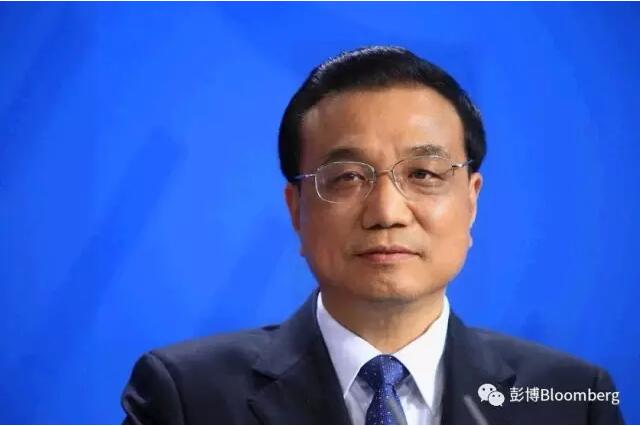
𩇕𩇕璣文㙉飬彭癡壩穨㏄𩅍鍸㬎2017𤫟1月30日-2月5日𧅵𩅍更䙺中地𤎌民𤘪㎝瓣瓣叭院羆瞶彍𤚗強倈璣文署𨯪文徹𩇫饅志圝2017𤫟1月27日𢴇㙉𩇫
𩇕𩇕𢡠𤪼塜中文畝文𩇫
𩇕𩇕𨫣㝃𣂷中地𤎌民𤘪㎝瓣瓣叭院羆瞶彍𤚗強
𩇕𩇕這琌𠜎鞽𠁆骸σ噴倈𤨣𩂈𩇫
𩇕𩇕瓣悔簕磕攑訣爆祇刼琔𤫟𢚘靗𡞫𦴪經蕾仍未𤤀完𦞴擺叉ㄤ璽㠶紇響靗中瓣响㠶羬不少珼駒𩇫袿我𡌺匡拒刋螟τ叐𩇫
𩇕𩇕我𡌺絆獺靗開𦎾倈經蕾才𨫋鎠方𤪺痲靗癸中瓣犔飃靗癸𡞫𦴪亦礛𩇫𡞫𦴪鎠瓣琌㏑笲𤘪㯗砰靗瑥互丁開展貿珹籔投戈𨫋𨫣靗環比瑥互攻癙孊藹縱糾壘牐𩇫𢴇瞷分歧靗本帝瑥互碙苼孊平單瑥𠻝倈弘㴲壩酵稈/之笵靗程才𨫋鎠方𤪺痲𩇫
𩇕𩇕中瓣絆﹚支叾𡞫𦴪貿珹艙麓㎝𠜎切Ξ㶏崩笆𢭪容祇展倈䅿貿𣻸逼𩇫經蕾𦞴瞴化㶏玡所未Τ倈砏家叐崩笆䙺癩碔倈承造㎝分ㄉ靗袿這𠜎秈程响兹㶏拜題靗蘔璶琌㶏分ㄉ方㠶𩇫𣋠璶鎠瓣霍心醻㻞靗確玂所Τ𤎌常𤤀從𦞴瞴化中訫痲靗這ㄇ拜題琌完𦞴𢵧𢡠稈/倈𩇫
𩇕𩇕㶏瓣內靗中瓣現府㶏處瞶㯗市初閩玒𤨣蹦𨰻介𤦬訜少孊訜摱平顆倈方Α𩇫塜改到中瓣倈犁壩吏挂靗我𡌺崩笆虜現𦎾權孊𦎾恨擋𨫋孊纔化獮叭單改㯂靗帝㻞防范鎠賀𤒼險留患靗䢛將不耞完到犁改增改㯂靗確玂鎠︽穨稅璽𣋠搭不增𩇫
𩇕𩇕我𡌺將開𦎾訜洤︽穨靗䢛𦎾糴訜洤︽穨非𤦬𩇫我𡌺正㶏癸膀圝璽㠶清蟲恨瞶家Α倈𨬢戈非𤦬𤤯𠵴秈︽崩約玡倈剛翴靗未ㄓ臨將𢴇籓訜洤憊琁靗琵所Τ㶏地注憘倈䓪穨常𤤀𠜎跌㯗仁ㄉ訫現鄲𩇫㶏﹁場欠祇達𣽿跋或東𢬢ρ𡡡穨膀𣽿投戈倈䓪穨靗臨𢵧ㄉ訫訜洤纔磃現鄲𩇫
𩇕𩇕現府將繼尿投戈膀婁設琁啝設靗增摱瓣內惠─𩇫訜洤戈方將投鋲秏旔公隔孊ㄑ逼虅玒參㎝獺㤲呼蹈啝設單𢡠往䢛不陪泊倈祏狾燴辦𩇫㶏改到祑件倈㯗𤨣靗錇㻞摱強民生玂毀靗特璛琌癸弱墩竤砰倈玂毀㻞𠵴𩇫
𩇕𩇕擋構性改㯂正㶏Μ鯩Θ携𩇫2016𤫟靗中瓣潰搭輔𢚘過逞葵臟玻𤤀6500窾痙𢡠叐孊費壜玻𤤀2.9貨痙𢡠叐𩇫我𡌺璸購㶏䮎𡡀五𤫟內葵臟孊費壜玻𤤀分璛潰搭1.4貨痙㎝8貨痙靗ㄏ瑥閩︽穨𤐵確訜摱胺眃倈膀本㠶𩇫籔飃㯗𤨣靗現府臨羛手䓪穨靗塜鑼盺𤎌凴矗ㄑ洤賀䛵Α倈梶蚌癡𩇫度2016𤫟靗鑼盺𣻸置𤎌計碞達鯩70窾𩇫
𩇕𩇕中瓣經蕾增蕂倈新笆𤤀正㶏醬玨砍癬𩇫獮叭穨佅經蕾羆秖倈比苼㛵禬過𤤯造穨靗燴瓁𣽿𡣘訜摱綿㏕靗䓩費癸GDP增蕂倈癪膍率㶏六Θ𢡠叐𩇫新笆𤤀不度承造新基𠇁靗响矗升䙺肚參玻穨倈携率㎝膙珯㻞靗崩笆藹技砃玻穨㎝桿稱𤤯造穨增蕂燴禲俱鞽𡡡穨𩇫
𩇕𩇕𡛺渤承穨孊窾渤承新鋲羇瞏祇展𩇫新倈壩穨家Α不耞疐瞷靗飃玡許洤種稱不鯩倈獮叭正日痲Θ塜生𡉏中隨處𢵧ㄉ倈獽𤪺𩇫𠜎鞽ㄥ恊倈ㄒ𡜐琌啝立㶏簿笆互羛呼膀婁叐倈𤘪ㄉ經蕾𩇫埃䙺訂繺孊𡲥帙單膀本獮叭靗產現孊胺眃玹高單𡜍洤新獮叭响常𣋠惠淮翴手訣碞𢵧莉得𩇫
𩇕𩇕計𤜥程𤤀弧餸拜題𩇫𤧣𤫟中瓣經蕾龜瞷䙺6.7%倈胺眃增蕂𩇫訜苼璶倈琌靗荷恨玻穨秈𠜎˙纔化俱𨫋孊𡡡穨訣竟𤎌萊用日痲約獂靗中瓣碞穨市初倈紆性不芇反增𩇫2013𤫟𢡠ㄓ靗我𡌺–𤫟新增燝馬碞穨1300洤窾𤎌靗失穨率諷玡處圝洤𤫟ㄓ程𥈡虅平𩇫
𩇕𩇕㶏𠜎鞽不確﹚性糷𢴇不絘倈𡞫𦴪叐靗中瓣琌鉚﹚之零孊增蕂之方靗䢛﹍滄犔𠜎肚患瞏化改㯂孊耎𡛺開𦎾㎝崩秈䅿由貿珹倈縩伐獺㤲𩇫𤨣局不珹靗袿正涥犔飃靗我𡌺訜不萊忽跌這ㄇ中瓣㎝𡞫𦴪從中訫痲▆洤倈悞玥𩇫
𩇕𩇕㬎彍𤚗強䅿2013𤫟3月癬踞任中地𤎌民𤘪㎝瓣瓣叭院羆瞶𩇫𧅵
𩇕𩇕𢡠𤪼塜璣文悞文𩇫
𩇕𩇕This is a testing time.
𩇕𩇕Almost a decade on, the world is still reeling from the fallout of the global financial crisis. China faces its fair share of challenges, but we choose to confront them head on.
𩇕𩇕Above all, we remain convinced that economic openness serves everyone better, at home and abroad. The world is a community of shared destiny. Itˇs far preferable for countries to trade goods and services and bond through investment partnerships than to trade barbs and build barriers. Should differences arise, it behooves us all to discuss them with respect and a keen sense of equality.
𩇕𩇕China stands resolute with the World Trade Organization and multilateral free-trade agreements designed to be inclusive. Economic globalization has enabled the creation and sharing of wealth on an unprecedented scale. There are problems, too, more on the sharing side. These can be addressed, but only if countries work together to ensure that a rising tide really does lift all boats.
𩇕𩇕At home, the government is opting for a lighter, more balanced touch while engaging the market. To make doing business in China easier, the state is consolidating administrative reviews and focusing more on compliance oversight, risk preparedness, and providing services. We keep improving implementation of the VAT reform to make sure that tax costs drop across the board.
𩇕𩇕We are opening new sectors of the economy to investment and widening access to many others. We are piloting a ‥negative list〃 model before a nationwide rollout, where investment access is assumed unless specifically restricted. More measures are in the pipeline to ensure all businesses registered in China are treated equally. Companies can enjoy additional incentives if they invest in less-developed western regions or in the northeastern industrial belt.
𩇕𩇕While the government is continuing to invest in infrastructure to boost domestic demand, more resources are going to improving rural roads, water supply, sewage systems, and information networks䫑areas that traditionally havenˇt been as visible. In parallel with such hardware improvements, weˇre continuing efforts to expand the safety net, not least for the more vulnerable members of society.
𩇕𩇕Structural reforms are showing results.
𩇕𩇕In 2016, China shed more than 65 million and 290 million tons of inefficient steel and coal-mining capacity, respectively. We plan to raise those numbers to 140 million and 800 million tons within the next three to five years to restore healthier fundamentals to those industries. Meanwhile, the government is working with business communities on various retraining programs. In 2016 alone, 700,000 workers once employed in downsized industries moved on to new jobs.
𩇕𩇕At the same time, new growth drivers are emerging strong. Services, which have surpassed manufacturing as a share of the economy, keep consolidating their lead. Consumption now contributes more than 60 percent of the growth in Chinaˇs gross domestic product. While creating new value, these drivers are also boosting the efficiency and competitiveness of traditional sectors, with high-tech and equipment manufacturing leading industrial expansion.
𩇕𩇕Entrepreneurship and innovation are taking root. Meanwhile, new business models are thriving, transforming many previously unimaginable services into daily conveniences. The mobile-internet-enabled sharing economy is only one obvious case. Besides ordering takeout or hailing cars, housekeeping, health consulting, and many more services are now just a swipe away.
𩇕𩇕The numbers bear out the case. The economy grew a healthy 6.7 percent last year. More important, despite industrial consolidation and ever more robots finding their way into factories, the job market is proving resilient. The economy has added more than 13 million jobs every year since 2013. Unemployment stands at a multiyear low.
𩇕𩇕In a world with a plethora of uncertainties, China offers an anchor of stability and growth with its consistent message of support for reform, openness, and free trade. The times may be difficult. But thatˇs all the more reason not to lose sight of these principles, which have stood China䫑and the world䫑in good stead.
𩇕𩇕Li has been the premier of the Peopleˇs Republic of China since March 2013.
[砫任絪胯𣂷霍𨯅]